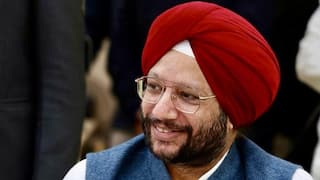Role Of HR: Here's How Human Resources Department Influences Success Of A Business
The HR team is responsible to verify the credibility, their talent area, and all the formalities required to induct someone in the system

On a scale of 1-10, the way the role of any department has been misunderstood, the rating for HR stands at 11. That it’s just responsible for handing out a paycheck every month or organising office/weekend engagement activities, it’s so largely misrepresented, while its functions are at the very core of organisational success. Sorry to break it to you, that HR plays a pivotal role in forming a company's strategy. Let’s discuss some key functions we extend in building a successful organisational strategy.
Keeping > Hiring
These days, there are many avenues to spot and hire new talent with the digital/social media portals coming to aid. The HR team is responsible to verify the credibility, their talent area, and all the formalities required to induct someone in the system. Recruiting the correct talent that aligns with the organisation's goals is essential, but the key is to retain them, to offer them a security and a culture that creates a strong sense of belongingness. These can be achieved with multiple factors.
- Training & Development: This ensues determining the level of training required in the hired talent, the gaps and spotting key development areas. This is beneficial not only for the company but also to promote overall growth in the people. Readying them for the next stage of their role is a key job function.
- Conflict Resolution: Where there are people, there are going to be conflicts regardless of how adept everyone is at their work. People have different working styles, different backgrounds, personalities, it is therefore imperative to instil proper feedback mechanisms to smoothen out the gaps and ensure a mutually respectful work culture.
- Diversity, Equity & Inclusion (DEI): If we’re not adding this in the key functions HR team needs to put at the core of any organisational practice, we need to wake up from the deep slumber. There needs to be proper education and a training manual to inculcate an acceptance and respect towards diverse people, in ethnicities, practices, identity etc. There needs to be an awareness program for every professional to be inclusive and stricter rules & action for people who step out of line in the professional work environment.
- Listen more: Employee surveys, anonymous feedback forms towards seniors and basically imbibing more empathy as a core value is a need, more than a choice, now more than ever. We’re still dealing with the ‘new normal’ birthed by the pandemic, we need to understand displacement issues, anxieties and listen more to help more. This needs to be a key function for any HR team, to foster a culture of safety and security.
Total rewards
By definition, 'Total rewards' means collective financial and non-financial rewards given to an employee in exchange for their work. This includes base pay, bonuses, retirement plans, health cover etc. It is put in place to appreciate the people whilst offering them a further motivation to invest their time & efforts in the company. This also affects the desirability for companies and often a source of competition. This is where a talented HR team comes to play an impressive role.
As defined above, these could be financial and non-financial. Some of them are:
- Pay: This includes the base pay, the year-end bonuses, commissions, employee referrals etc
- Leaves: This includes the stipulated number of leaves offered with sick leaves, festive leaves, paternity/maternity leaves and in some cases, period leaves as well
- Health cover: This happens to be one of the most treasured benefits for people, to be able to rely in case of any mishappening
- Perks: Getting access to parking spots, employee vouchers, discounts, access to books etc. This may also depend on the nature of your job or the industry one belongs to
Now, the HR team prepares a TRS, a Total Reward Statement that is a whole package of salary, bonuses, benefits, pension/retirement plans etc along with a proper breakdown. What is also an underrated role is how they are communicated to the employee. The communication must be precise, well-detailed with a two-way dialogue. One needs to be patient in taking the employee through the statement. I would suggest face-to-face to bring the human touch but we’re in the new era, so even video conferencing is preferred.
Bottom Line
Reportedly in this article, the People IQ study found that only 13 per cent of managers and workers believe their organisation's PM system is useful. This is a wake-up call almost to course correct the performance management system; by creating a motivating environment, to instilling metrics and means to improve employee performance. This is an essential function for the HR team so as to instil organisational effectiveness whilst keeping budgeting as an important reference since they’re interdependent. HR budgeting affects organisational effectiveness and helps the company's bottom line.
To conclude, a well-delivered, optimum HR function is a critical catalyst for any organisation. We keep going back to the pandemic because it taught us many lessons and one of them was that we need Trust. Based. Leadership. We had a great burnout at one point of time, some stayed for financial stability, but the goal is to retain good talent based on the trust the company and leaders earned in them. We need to know that we can no longer 'instruct' our people, true leadership lies in 'training & coaching' people to become better and worthy leaders. This is where an effective, talented and appropriately motivated HR team comes into play because it does lie at the heart of executive and organisation’s success.
The writer is the director, HR, at Giesecke & Devrient MS India Pvt. Ltd.
[Disclaimer: The opinions, beliefs, and views expressed by the various authors and forum participants on this website are personal and do not reflect the opinions, beliefs, and views of ABP News Network Pvt Ltd.]
Related Video
Union Budget 2025: Arvind Kejriwal lists the shortcomings of the Modi government's budget | ABP News | AAP





































